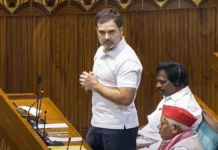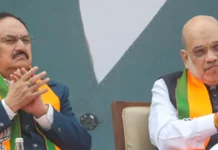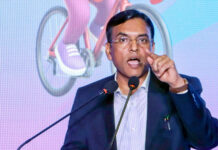 MUMBAI: Be your own man, Ratan Tata has advised Cyrus Mistry, who will succeed him at the helm of the USD 100 billion Tata group two weeks from now.
MUMBAI: Be your own man, Ratan Tata has advised Cyrus Mistry, who will succeed him at the helm of the USD 100 billion Tata group two weeks from now.
“I don’t think it is right to have a ghost to shadow over somebody,” says Tata, dismissing any notion that his larger-than-life persona would linger even after he retires on December 28 when he turns 75.
The Tata patriarch has told Mistry, 31 years younger, “you should be your own person, you should take your own call and you should decide what you want to”.
Tata spoke about his 50 years with the group, 21 as its chairman, the highs and lows of his tenure, his equation with Mistry and his post-retirement plans during an expansive interview to PTI in his office at “Bombay House”, the group headquarters.
Mistry, currently Vice Chairman of the conglomerate that spans automobiles, IT, hotels, tea and steel across 80 countries, has been working closely with Tata to prepare for the transition.
Have you passed on a success mantra to Mistry, the outgoing chairman was asked.
“No, I told him the same things that I told myself when JRD (late J R D Tata) handed over the mantle to me. The first reaction of anybody is to be Mr J R D Tata because you are filling his shoes.
“I instantly told myself, ‘I can never do that’. I will never be him much as I try to imitate him. So I took a decision to be myself and to do what I thought was the right thing. I told Cyrus the same thing,” he said.
During the transition, Mistry had asked him from time to time, ‘is this ok, that ok’. He had responded by telling him that he should look at things as “if I were not there because you should be your own person”.
He had told Mistry, “if you want my inputs I will give it to you but be your own man and be yourself and just be driven by the fact that every act you do and every move you make has to stand the test of public scrutiny”.
That, he said, was the test he had given himself. “If it stands the test of public scrutiny, do it….if it doesn’t stand the test of public scrutiny then don’t do it.”
Asked if his counsel would be available to his successor, Tata replied, “Yes, certainly. He knows where to reach me and, we in fact, would talk business and stay in touch after I leave.”
He then disclosed that the two of them would have lunch every couple of weeks “over something and we will talk about whatever he wants to talk about”.
Tata, who will remain Chairman of the various Tata trusts, which hold 66 per cent shares of Tata Sons, was asked as to whether this would not give him a large influence over the group.
He replied, “I don’t want to say I will have a large influence over the group. I think I would have to wear a different hat of being the major shareholder. The same kind of view that a shareholder might have, not a Chairman’s view of the company.
“I should not be involved in the business of the company or how the company goes about its growth. But at the same time I should be concerned about the return I get on my shares because it is the only income that the trusts have.”
The dividend from Tata Sons was to be distributed for charity by the trusts. “So I should protect that,” he said.
Looking ahead to the future of the group, Tata said that he personally believed that it was poised to continue to grow.
“Where it would grow, I think Cyrus Mistry should have his space and define where he would like it to grow,” he said.
His 20 years at the helm was enough time to charter course. Quite often an organization has played out one course and is ready to go in a different direction, he said.
Often, an unwillingness to have that “course correction brings about the demise of an organization because when you bring fresh blood into it, he sees things in another way,” Tata said.
The group would continue to grow at the same kind of growth that it had achieved but the patriarch warned, “Competition is growing all the time and sustainability of business is becoming more and more difficult”.
He went on to say, “So I am sure Cyrus will bring new ideas and new things. I feel very confident that the organization and his leadership will grow.”
Asked about the changes he had not been able to achieve in the group, Tata said that he had wanted a more open, flat organization where there is not much hierarchy, where there is much more informal working relationship at all levels.
“We are very hierarchical, not feudal – given to honoring years of experience… We don’t touch each other’s feet but we still almost bow down every time when one passes.”
Describing his long tenure as a “journey of great learning”, Tata said that he had a role model to look up to in Mr J R D Tata whom he had got to know about six years after he joined the group.
He knew him but was not close to him and they had come close together because they were both pilots.
“I have been flying since I was 17 and when he came to Jamshedpur, it was flying which he liked to do and I liked to do. That brought us close and created a friendship between us which grew over the years,” he said of the elder Tata.
“So it was a period of learning, a period of frustration also from time to time. Things didn’t happen which as a young man I thought should happen.
“As an older person I understand being told as I was at that time that you have to be patient and so on as things don’t happen as you might wish them to be.”
Summing up his life with the 144-year-old conglomerate, Tata said, “On the whole it has been a very rewarding experience. I tried to uphold the values and ethical standards that were there.
“I feel satisfied that I have done my best to do what I considered to be the right thing and that has been there throughout.” -PTI





